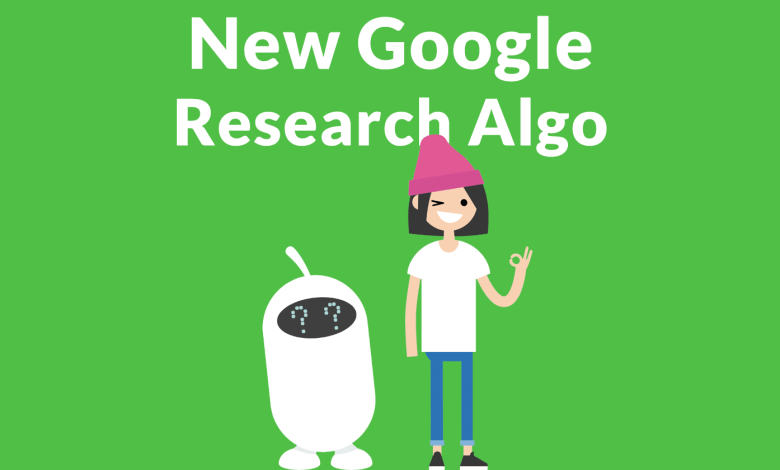
A recent research paper by Google Research introduces a new algorithm that suggests a novel approach to answering queries, potentially altering the impact of traditional ranking factors. In the short term, this research offers insight into what Google means by algorithm updates aimed at enhancing relevance.
The New Algorithm in Simple Terms
Google Research shared this new paper at the Sixth International Conference on Learning Representations, with the announcement made on Twitter. The paper, titled “Ask The Right Questions: Active Question Reformulation with Reinforcement Learning,” explores a method for reformulating queries to a ranking engine. Although Google already uses query reformulation and stemming, this paper presents a machine learning algorithm employing a Reinforcement Learning approach. Uniquely, the algorithm works without prior knowledge of the ranking system, interacting with it as a ‘black box’ to learn effective question asking. The learning system reforms user queries into multiple questions, submits them to the ranking engine, and selects the best responses from the returned results.
How the Algorithm Functions
An illustration in the paper explains how this machine learning algorithm operates:
The user poses a question, and the machine learning algorithm (the agent) reformulates it into several questions, then submits these to the ranking algorithm. The ranking algorithm provides sets of results, and the agent selects the best answer. As described in the research paper:
“In facing complex information needs, humans mitigate uncertainty by reformulating questions, issuing multiple searches, and synthesizing responses. Inspired by humans’ query skills, we introduce an agent that learns to perform this process on behalf of users. This agent operates between the user and a backend QA system, referred to as ‘the environment.’ We call the agent AQA, which stands for active question answering strategy, aiming to enhance the likelihood of finding the correct answer by directing reorganized questions to the environment. The agent probes optimally, using only question strings to determine the best answer, despite lacking insight into the environment’s internals.”
Significance of This Algorithm
This algorithm exemplifies a machine learning technique known as Reinforcement Learning, previously applied to mastering games like Go and video games like Doom. It is noteworthy for SEO because it illustrates how an algorithm can mediate between a user and the regular ranking algorithm, making decisions. Instead of the ranking algorithm determining search engine results pages (SERPs), this machine learning mechanism makes the choices. This approach diverges from the traditional SEO understanding of ranking based on factors like links, title tag text, and anchor text. While links remain crucial, they merely influence which web pages are considered for ranking, not the final decision. It’s the role of another algorithm to decide which pages most effectively answer the query.
Consider the scenario where a web page with fewer links outranks those with more. It’s likely due to an intermediary algorithm assessing the site as a better response.
What to Do About Ranking Factors?
The ranking algorithm is no longer the sole determinant of which sites rank in the top ten, casting doubt on studies that attribute rankings solely to traditional factors. Such studies assume that these factors drive the top ten results, but this isn’t always the case, making some studies unreliable. Though this particular algorithm may not be in use currently, similar algorithms already exist that bypass the ranking algorithm’s results, re-ranking SERPs using different criteria. For example, Google holds a patent for re-ranking search results via a score modification engine. This concept isn’t new; Microsoft published research on re-ranking in 2005, aimed at better meeting user intent for ambiguous queries.
SEO Implications
Potential future effects on SEO include a heightened focus on aligning with user intent—an improvement referred to as enhanced relevance. When Google mentions an update improving relevance, understanding the changes involves examining successful sites instead of those that lost rankings. Rather than introspecting sites losing SERP positions, insight comes from analyzing successful counterparts.
Visual content by Shutterstock, modified by the author. Images and screenshots produced by the author.


